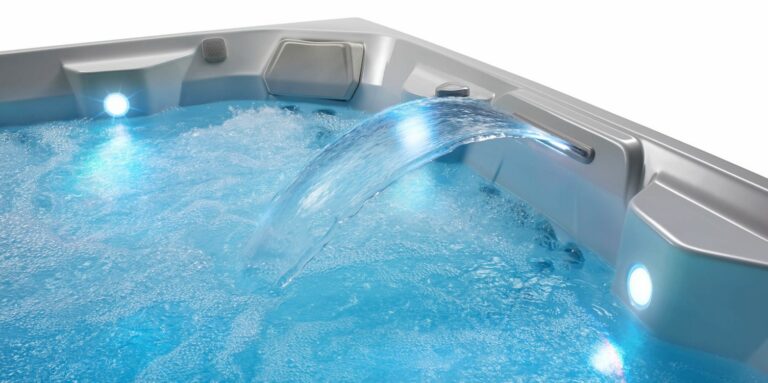The concept of self-care has become ubiquitous over the last five years, owing to the greater emphasis on health and wellness.
As terms like work/life balance and wellness trends such as meditation and healthy eating became more prevalent, so did the idea of self-care.
And more than just a trendy phrase or concept, self-care is serious business, with the Los Angeles Times reporting that it is now a 10 billion dollar industry.
What is Self-Care and Why is it Important?
So what exactly is self-care? There are various definitions, including perhaps the most comprehensive from the World Health Organization (WHO), which states that self-care is “the ability of individuals, families and, communities to promote health, prevent disease, maintain health, and to cope with illness and disability with or without the support of a healthcare provider.”
The WHO’s definition is a broad description of saying that self-care essentially means caring for one’s physical, mental, and emotional well-being. It’s a concept that encourages individuals to remember to focus on themselves and their needs. To focus on the things that they need to be the healthiest and happiest versions of themselves.
Self-care is a relevant concept because it encourages us to take care of ourselves, which is never a bad thing. It’s encouraging individuals to stay vigilant about all aspects of their health. For example, ensuring regular doctor visits, taking personal days when needed, exercising regularly, eating well, and more. These are all positive elements that can only positively impact someone.
Health and Lifestyle Benefits of Self-Care
The benefits of self-care are numerous, without many downsides.
- Improves Physical Health – If you’re exercising more regularly, eating healthier, and having regular medical checkups, it’s a no-brainer that your overall physical health will improve.
- Improves Emotional Health – Research has proven that your physical health often directly affects your emotional health. So if your physical health is poor, you are more likely to experience increased stress, anxiety, and burnout. Consequently, if your physical health is good, your levels of stress, anxiety, and burnout tend to decrease.
- Increases Productivity – When we feel better physically and emotionally, we tend to have more energy, be more focused, and feel more motivated. And experiencing these can often result in better productivity both at work and in our personal lives.
- Reduces Burnout – Burnout is a genuine concern that has come to the forefront, particularly in the past year and a half, furthering the emphasis on the importance of self-care. According to a report from Deloitte, 77% of people surveyed said they had experienced burnout at their current job. Proper self-care helps improve physical and emotional well-being that consequently helps reduce feelings of burnout. That is especially so as a significant element of self-care is maintaining a good work-life balance.
- Improves Relationships – Physically and emotionally healthier individuals tend to have more positive attitudes that can result in more positive relationships with family, friends, and co-workers.
- Improves Overall Happiness – Perhaps the best benefit of good self-care is one’s overall happiness. If you are physically and mentally strong, have a good work-life balance that reduces feelings of burnout and is more focused, more productive, and have better relationships, it can all lead to being a lot happier.
Tips to Make Time in Your Day/Week for Self-Care
The very reason some people need better self-care is the reason they often use for not practicing it. That is, there is no time between the everyday stressors of life – too much work to get done, deadlines to meet, childcare to handle, and more. However, self-care doesn’t always require a long daily commitment. Sometimes just 15 or 30 minutes of certain activities can do wonders. Here are a few tips for making time for self-care.
- Schedule It – If the problem is time and feeling overwhelmed, schedule your self-care activities the same way you would work activities or appointment. Some people feel awkward about this method, as they view it as making self-care an obligation when it should be something relaxing. Not true. The reality is sometimes we feel overwhelmed, and the only way to gain some calm is by organizing our day. So if the only way you can meditate for 15 minutes is by scheduling it into your daily activities, do so.
- Fit it Into Normal Routines – Self-care does not always require a significant of time blocked off from everything else in your life. Sometimes it is possible to incorporate a self-care activity into another activity or daily routine. For example, if listening to classical music is calming to you, put some on while you’re cooking dinner. If daily affirmations help put you in a positive state of mind, play some as you drive to work.
- Focus on Small Goals – We sometimes place greater emphasis only on big goals. In other words, we may define proper self-care as losing a certain number of pounds, working out consistently for 30 minutes a day, or only eating certain foods, etc. The reality is as great as big goals are, the small accomplishments are just as significant. In other words, spending ten minutes a day writing in your journal is self-care, stretching for five minutes, a short walk, just dancing around for a few minutes to a favorite song. All of these can successfully contribute to good self-care.
- Make It Fun – Piggybacking off the above point, many of us are guilty of believing that certain activities are a must for good self-care, whether or not we enjoy it. However, lack of enjoyment only makes it harder to stay committed to an activity, no matter how good it is for you. If you don’t enjoy yoga or meditation, then don’t do it. They are not essential to self-care. Find an alternative that you can enjoy. For example, maybe instead of meditation you prefer quietly listening to your favorite music or playing with a pet.
- Break Up Activities – Much like our work-life, some approach self-care as a task list they must get through all at once. You don’t have to work out, take a walk, meditate, write in your journal, try a new activity, spend time with loved ones all in one day or even one week. It’s okay to break up your self-care activities to avoid getting overwhelmed by the very thing that should make you feel better.
- Ask for Suggestions – If you’re feeling a bit lost and overwhelmed over how to start a self-care routine, ask those in your life for suggestions. It can be a friend, family member, and co-worker, or maybe search online and find an app that provides recommendations. The key to remember is that self-care encompasses a vast array of activities.
Self-Care Activities
As noted above, starting a self-care routine can be daunting for someone unsure of how to begin. That is because self-care activities encompass many areas. Including, physical activities, psychological activities, spiritual activities, work activities, and more.
The best place to start is to craft a plan that identifies the goals you want to achieve and the activities to achieve said goals. The following are few beginner activities to get anyone started on their self-care journey.
- Keep a Journal – There is a common belief that sometimes writing things down helps us better process our feelings. Journaling is one of the most popular self-care activities. Many use it for daily affirmations of what they are grateful for. But you can also use journaling to express how you’re feeling in a moment, and the things you’re happy or stressed about. Either way, it can be a great release.
- Unplug Once a Day – Many individuals spend hours daily scrolling through social media, browsing various websites, working online, shopping online, and more. We are regularly attached to some device, be it a laptop, tablet, or smartphone. A simple but beneficial self-care activity is to unplug for a few minutes a day. Maybe it’s right before bedtime or for thirty minutes when you first wake up.
- Start a New Hobby – One of the biggest trends to come out of the pandemic was many individuals’ starting new hobbies. People were baking, gardening, knitting, etc. Starting a new hobby is usually a great creative outlet for many and can help reduce anxiety and stress.
- Take Regular Bubble Baths – Research has shown that a soothing bubble bath can have various benefits, including helping to ease muscle tension, calming your mind, and reducing any stress and anxiety you may be experiencing. Regular bubble baths are an indulgence many should embrace.
- Declutter – There is an adage, which states that a cluttered space leads to a cluttered mind. In other words, if there is no order in your physical space, it will eventually negatively impact your mind. Therefore, dedicate a few minutes a day to decluttering a particular area of your home or workspace. It can be something as simple as cleaning out your fridge to throw away any old items.
- Exercise Regularly – This goes without saying. The health benefits of regular exercise are well-documented. Many individuals discourage themselves from regular exercise by assuming it must be intense workouts. Not true. Many low-impact activities are just as effective as a 30 minutes workout. Such as taking long walks or swimming.
- Have a Regular Sleep Schedule – The importance of a regular sleep schedule cannot be understated. Getting steady sleep and being well-rested can positively impact one’s physical, mental, and emotional well-being. Create a sleep schedule and nightly routine and stick to it. The following tips can help.
- Talk to a Professional – For a long time, there was a stigma around talking to a mental health professional. Many saw it as an admission of madness. The reality is that talking to a mental health professional is essentially the equivalent of talking to a friend who happens to be well-trained to help you make sense of your feelings and emotions. We all get overwhelmed and sometimes need the release of venting to someone that can provide the tools to help us better deal with our feelings.
- Have Regular Catch-Ups with Loved Ones – It is okay to have alone time and prefer it to time spent with others. However, too much isolation can be a bad thing. Maintain regular catchups with family and friends. It doesn’t have to be extensive get-togethers. Meeting for coffee once a week can do wonders for one’s well-being.
- Take a Solo Wellness Trip – Costlier than the other items on this list but if possible, consider taking a solo wellness trip at least once. There are various wellness hotels and spas that offer a variety of self-care activities. Treat yourself and experience a journey on your own.
- Embrace Nostalgia – We’re often discouraged from holding onto the past. And, indeed, holding onto negative past experiences is often counter-productive. However, some nostalgia is good for the soul every once in a while. Maybe it’s a song or a movie, or a place that takes you back to a special time in your life. Revisit it occasionally and embrace the memories and emotions it stirs in you.
- Have a Beauty Pampering Day – Take a day to pamper yourself. Maybe that includes a visit to a spa for the works – massage, facial, manicure and pedicure, blowout, etc. Whatever the case may be, pick a day that’s solely devoted to beautifying yourself.
- Get All Your Regular Medical Check-Ups – Many individuals focus only on general medical checkups and ignore others. Ensure you’re regularly visiting your general practitioner, dentist, gynecologist, optometrist, and in some cases, even your dermatologist.
- Bring the Spa to You – You don’t always have to shell out the big bucks for a spa-like experience. There are ways to bring the spa experience into your home. Consider investing in an outdoor hot tub or swim spa to experience the hydrotherapeutic benefits of a good soak or swim from the comfort of your home.
- Be Still – Finally, a simple self-care activity we can and should all practice is staying still for a few moments a day. That means no scrolling on your phone, watching television, writing, or doing anything that will distract from merely quietly sitting or standing still. It is an activity that is a lot harder for many people than it sounds. Because many of us are guilty of constantly moving, racing from one task to another, thinking about the next thing we have to get done, and never allowing ourselves to stop and just be in the moment.
Hot Tubs and Swim Spas for Self-Care
Did you find the information in this article helpful? Learn more about how the use of hot tubs and swim spas can help positively impact your self-care routines in our blog section.
We also have a comprehensive resources section on our website, to answer any questions you may have.
If you’re ready to take the next step and find the best hot tub or swim spa for your lifestyle, contact our experts at Lifestyle Outdoor today.
We are more than happy to help you browse our various selections and work with you to ensure you receive the best investment.




